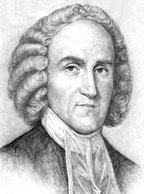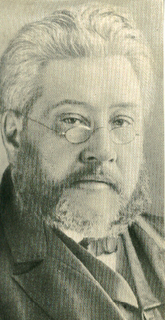
I end the posts on the five solas with the one that has in recent years been the most revolutionary, and precious to me, Sola Deo Gloria. To be brief we live in a consumeristic culture and this mindset really is an integral part of our thinking. We analyze products with the mindset of how they will make us feel and what benefit they will bestow upon us in contrast with the cost (Time, money etc). Our philosophical views as well as theological will contain elements of this cultural influence. In the area of theology it is clearly seen in the most popular books over the past decade in the Christian market:
"
Your Best Life Now, 7 Steps to Living
At Your Full Potential"
"40 Days to
Purpose"
"Discovering
Your Destiny"
"The Prayer of Jabez: Breaking Through To
the Blessed Life" etc.
Do we see a trend here? There are products being sold to consumers in each of these titles, purpose, the best life possible, power unleashed, destiny. This is natural and to be expected in a consumeristic culture, and I would argue that the consumer culture is not the root of our man-centeredness but a fruit. Our man-centeredness is ultimately birthed from the fall in Eden where Adam our federal head chose autonomy rather than submission to God.
To cut to the chase we as 21st century evangelicals have adopted a thinking about God which elevates man and his will over God, man will be his own predestinator, man will be reached on his terms, and man will worship God as seems right in his own eyes (now I am not just talking about Arminianism for that is only a part of the picture, albeit a big part). We really think God's reason for existence is to serve and comfort us, He is a sort of Grandpa in the sky who gives us a boost (purpose, good life) and is there when we want and to be met how we want.
This is in stark contrast to the vision of God in the Bible, a God who is jealous for His name, and does all things for His own glory. It has been this truth that has shaped my vision of God as no other doctrine, I think this is the very center of all other doctrines. Sola Deo Gloria is like a gushing mountain spring from which flow numerous streams of truth (justification, redemption, election, the incarnation etc) all finding their fount and source in the truth that God does all things for the sake of His glory. In the following post I will lean heavily on Jonathan Edwards' Treatise: "The End For Which God Created the World, it has been Edwards' book that has pointed me to this truth that has shaped everything I do.
The first half of this will be philosophical, and here I will lean most heavily on Edwards, the second will be a scriptural testimony of this truth, this is how Edwards divides his book. In the second half will be scripture after scripture that supports this thesis so if you aren't into philosophical treatise just skip down to the second half.
I) The Chief End of God...(Philo)Firstly, a distinction needs to be made between "ultimate" ends and "subordinate" ends. Edwards writes:
"A subordinate end is what an agent aims at, not at all upon its own account, but wholly on the account of a further end of which it is considered as a means."
(1)The point here is that there are acts done by any agent really that are not the end in themselves but carried out to accomplish an end. An example would be going to work, going to work is not an end in itself (generally) but a means to an end such as providing for one's family. Thus the ultimate end is that which is sought for its own sake, what is valued of its own account and not in itself a means to another end. Based upon this Edwards maps out the following line of thought:
a.) "
A subordinate end is never valued (as a chief end) above its own ultimate end."
(2) Based upon the above definition of subordinate and ultimate ends it is absurd to say that the means is more valued than the end itself.
b) "
When there is only one ultimate end it is chief above all other ends."
(3) If there be any one ultimate end every other end is only a means to that ultimate end. This is so in the operations of God.
c) "
The 'original' and ultimate end of all creation governs all of God's works"
(4)d) "
In the 'highest sense' of God's ultimate end in creation, this end is also the end of all His works of providence."
(5) What Edwards is saying here is that the end for which God created the world is the same end aimed at by God in all His works in interacting with mankind throughout history.
e) "
There is only one ultimate end of creation if only one end is agreeable in itself"
(6) If there is one sole reason by itself as to the motive of God in creation then that same motive (end) is what is aimed at in all of God's works.
This is a logical argument and I have left out some of the scrupulous steps for spaces sake but the point we arrive at is e) that if there is but one end which motivated God to create that same end is what is aimed at in all His works, and is most prized by God. Now Edwards moves to defining what original end for which God created the world is.
"Whatever that be which is in itself most valuable, and was so originally, prior to the creation of the world, and which is attainable by creation, if there be any thing which was superior in value to all others, that must be God's last end in the creation; and also worthy to be his highest end." (7)"
And, Therefore, if God has respect to things according to their nature and proportions, He must necessarily have the greatest respect to Himself."
(8) What has been said in these last statements is that if God is values things appropriately the most valuable must be God Himself. This must be so for God to be upright, for God to be upright is for Him to value that which is most good (Himself).

"
Hence it will follow that the moral rectitude of the disposition, inclination, or affection of God CHIEFLY consists in regard to HIMSELF, infinitely above His regard to all other beings; in other words, His holiness consists in this."
(9)This statement is extremely profound, Edwards is arguing that God's holiness demands that God value that which is most valuable, namely HIMSELF, for God to do otherwise would be to compromise His holiness. God would be unrighteous in fact if he failed to delight fully in what is most beautiful, and worthy , namely Himself. So how do we as creatures fit into this picture? To quote Edwards:
"
If the perfection itself be excellent, the knowledge of it is excellent and the esteem of it is excellent. And as it is fit that God should love and esteem His own excellence, it is also fit that He should value and esteem the love of his excellency. And if it becomes a being to highly value Himself, it is fit that He should love to have Himself valued and esteemed."
(10)This is amazing, if Edwards is right the popular bookstore view of God that is so often presented (having man chief in His affections) is way off the mark. Yet through philosophic reasoning we are begining to see the God-centeredness of God, howeverm ultimately scripture is where we must turn to see what is chief in God's affections.
II) The Chief End of God... (Scripture)
From the arguments above the conclusion is reached that God has His own glory chief in His affections, this is the end sought in all that He does. We now turn to the bible because ultimately this is where this truth shines most brightly, through creation, providence and redemption. I will just put up the passages and comment here and there the point should become fairly evident that God in His acting has His glory (Himself) chiefly in mind.
First and Last:
"
Thus says the LORD, the King of Israel and his Redeemer, the LORD of hosts: "I am the first and I am the last; besides me there is no god." (Isa 44:6)
"
Listen to me, O Jacob, and Israel, whom I called! I am he; I am the first, and I am the last." (Isa 48:12)
"
I am the Alpha and the Omega," says the Lord God, " (Rev 1:8)
"
And he said to me, "It is done! I am the Alpha and the Omega, the beginning and the end. To the thirsty I will give from the spring of the water of life without payment." (Rev 21:6)
The point here is that God is the first and the last, He authored creation and He is the end to which creation moves. This is how the Lord's prayer ends as well.
The Duty of Man: 
"
So, whether you eat or drink, or whatever you do, do all to the glory of God." (1 Cor 10:31)
"
whoever speaks, as one who speaks oracles of God; whoever serves, as one who serves by the strength that God supplies--in order that in everything God may be glorified through Jesus Christ. To him belong glory and dominion forever and ever. Amen." (1 Per 4:11)
Here we see man is to seek the glory of God above all, and ascribe glory to God. Many more scriptures can be cited but I wish to focus on the issues of redemption.
Christ's Ultimate End In His Ministry:It would probably be casually stated by most believers that the ultimate end of Christ's ministry on earth was the redemption of men. However, if Edwards is right and I understand the bible correctly, the salvation of sinners is not an ultimate end but rather a "subordinant". The ultimate aim in Christ's work was the glory of God. Thus, it is because God is passionate about His glory that sinners have hope, God will be glorified through saving and forgiving sinners. The fact that Christ sought God's glory first and foremost is evident through the following passages:
"
The one who speaks on his own authority seeks his own glory, but the One who seeks the glory of him who sent him is true, and in him there is no falsehood." (John 7:18)
"
Father, glorify your name." Then a voice came from heaven: "I have glorified it, and I will glorify it again." (John 12:28) [this passage comes as Christ is praying about His coming death which would save many]
"
Then Jesus had spoken these words, he lifted up his eyes to heaven, and said, "Father, the hour has come; glorify your Son that the Son may glorify you," (John 17:1)
"(
This he said to show by what kind of death he was to glorify God.)" (John 21:19)
The End of The Work of Redemption is the Glory of God:In addition to the passages already mentioned surrounding Christ seeking first the glory of God in His work there are many others surrounding issue of redemption in general describing the redemption of sinners as chiefly for the glory of God.
"He predestined us for adoption through Jesus Christ, according to the purpose of his will, to the praise of his glorious grace, with which he has blessed us in the Beloved." (Eph 1:5-6)
"[Our salvation is] to the praise of his glory." (Eph 1:12,14)
"knowing that he who raised the Lord Jesus will raise us also with Jesus and bring us with you into his presence. For it is all for your sake, so that as grace extends to more and more people it may increase thanksgiving, to the glory of God." (2 Cor 4:14-15)
Likewise in the Old Testament:
"Help us, O God of our salvation, for the glory of your name; deliver us, and atone for our sins, for your name's sake!" (Psalm 79:9)
"For my name's sake I defer my anger, for the sake of my praise I restrain it for you, that I may not cut you off. Behold, I have refined you, but not as silver; I have tried you in the furnace of affliction. For my own sake, for my own sake, I do it, for how should my name be profaned? My glory I will not give to another." (Isa 48:9-11)
A note must be said that when God is said to "act for His name's sake" it is synonymous with acting for the sake of His glory. The picture is becoming clear, the glory of God is the chief end sought in the redemption of man.
Other Passages Supporting This (The basis on which we can approach God): "For the LORD will not forsake his people, for his great name's sake, because it has pleased the LORD to make you a people for Himself." (1 Sam 11:22)
"He restores my soul. He leads me in paths of righteousness for his name's sake." (Psalm 23:3)
"For you are my rock and my fortress; and for your name's sake you lead me and guide me;" (Ps 31:3)
"For your name's sake, O LORD, pardon my guilt, for it is great." (Ps 25:11)
"Help us, O God of our salvation, for the glory of your name; deliver us, and atone for our sins, for your name's sake!" (Ps 79:9)
"Though our iniquities testify against us, act, O LORD, for your name's sake; for our backslidings are many; we have sinned against you." (Jer 14:7)
"who caused his glorious arm to go at the right hand of Moses, who divided the waters before them to make for himself an everlasting name" (Isa 63:12)
"Yet he saved them for his name's sake, that he might make known his mighty power." (Psa 106:8)
"But I acted for the sake of my name, that it should not be profaned in the sight of the nations among whom they lived, in whose sight I made myself known to them in bringing them out of the land of Egypt"(Ezek 20:9)
"But I acted for the sake of my name, that it should not be profaned in the sight of the nations, in whose sight I had brought them out." (Ezek 20:14)
"But I withheld my hand and acted for the sake of my name, that it should not be profaned in the sight of the nations, in whose sight I had brought them out."(Ezek 20:22)
Now by now I think it is clear that the glory of God is what God seeks in all that He does. The passages cited are in truth but the tip of the iceberg of what is in scripture about the God-centeredness of God. But oh the application of such a truth! Spurgeon said that we should when we pray approach God in prayer like lawyers pleading with Him for the sake of His name/glory to act on our behalf. Indeed this is the biblical precedent of how the men in scripture approached God. To realize the Godcenteredness of God has probably been (outside of coming to faith in Christ) the most revolutionary truth about God that has shaped my life. The power this truth has to deliver us from the spirit of the age which is so grossly man centered and makes God into a sort of life enhancing add-on is of inestimable worth.
Notes:(Citations are all from "The End For Which God Created the World" are found in John Piper's "God's Passion for His Glory" [GPFG] in which the full text of Edwards' work can be found.)
(1) pg.125 GPFG (2) pg. 128 GPFG (3)pg. 130 GPFG(4) pg.134 GPFG(5) pg.134 GPFG(6) pg.135 GPFG(7) pg.140 GPFG(8) pg.140 GPFG(9) pg.141 GPFG(10) pg.149 GPFG
 Well, the issue has actually been brewing for a good bit with me and the Slice of Laodecia page. I really do like a good bit of what they put up on the blog and personally like Ingrid Schluetter's radio program that is on daily out here. Much of what is talked about really is bringing compromises to the forefront of evangelicalism and calling for integrity in the church, that I am wholly in support of. However, what has seemed to be a trend on Slice has been a "guilt by association" kind of argument posited against many of those of a more "emergent" persuasion. The guilt by association argument was actually used today by Ingrid on her radio show, in reference to Donald Miller. She said (paraphrase) "Donald Miller's has said his favorite author is Mrs.X (some very questionable "Christian") so that should tell you right there the kinda person we are dealing with." Stuff like that bothers me.
Well, the issue has actually been brewing for a good bit with me and the Slice of Laodecia page. I really do like a good bit of what they put up on the blog and personally like Ingrid Schluetter's radio program that is on daily out here. Much of what is talked about really is bringing compromises to the forefront of evangelicalism and calling for integrity in the church, that I am wholly in support of. However, what has seemed to be a trend on Slice has been a "guilt by association" kind of argument posited against many of those of a more "emergent" persuasion. The guilt by association argument was actually used today by Ingrid on her radio show, in reference to Donald Miller. She said (paraphrase) "Donald Miller's has said his favorite author is Mrs.X (some very questionable "Christian") so that should tell you right there the kinda person we are dealing with." Stuff like that bothers me.















